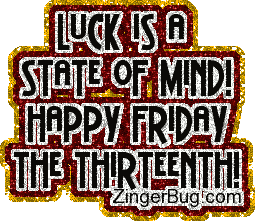 Hi, y’all — Greyfox here.
Hi, y’all — Greyfox here.
There is no such thing as a monolithic Native American (yeah, I dislike
the phrase myself) religion–the 600 or so existing tribes at the time
of the European invasion all had different religions. There was one
concept which seems almost universal among indigenous peoples, that
being animism–the idea that everything has a soul. In the words of a
poem from Chukchee (a tribe in Siberia) shamanism,”Everything that is,
is alive.” This produced a sort of unity consciousness–as in the
Lakota phrase, “All our relations.” That is, two-leggeds, four-leggeds,
and all were related and all deserved respect.
However, this unity
consciousness did not seem to extend to other Indians–as far as I
know, there was no generic word in any Indian language for “Indian” –
most used a word that is translated as “enemy” or “stranger” for other tribes, and “people” for their own. The
Urantia Book wisely observed that we might have raised a mighty civilization and fought off the invaders
if it had not been for our “lamentable tendency” to fight among
ourselves.
(True unity consciousness has been described as the highest of the
seven states of consciousness, embodied in the phrase “We are All One.”
If everyone subscribed to this notion and grokked it in fullness, there
would be no more war, hunger, homelessness or poverty in the world. And
no one would have to give up anything to accomplish this. Okay, we
WOULD have to give up our fear, hatred, paranoia, xenophobia, and so on.)
What’s more, many of us massacred each other, took slaves, raped and
pillaged when it served our purpose. Forget that “Dances With Wolves”
stuff–that was the product of a neo-Rousseau-minded white guy.
To reiterate, at the time of the European invasion, there were roughly
600 tribes on this continent, each with its own language and religion.
To get a quick view of how much these religions varied, spend a few
hours comparing and contrasting Hopi, Zuni, and Diné (aka Navajo)
religion and world views. They varied radically, even though all three
live in contiguous areas.
My tribe, the Muscogee Nation, called the great spirit the Master of
Breath–which seems odd at first, but look at how yoga and many other
spiritual disciplines stress the importance of breathing as a
meditative tool. And the Christian tradition makes a big deal out of
the “breath of life.” 
[Wow! KaiOaty here. He just sorta cut that off abruptly... ran out of time, or out of ideas, I guess. The two of us collaborated a couple of years ago on a more extensive survey of Native American Spirituality, with enough nifty images to flummox a dial-up connection or bollix a system with limited memory. You might enjoy it, anyway.]






Recent Comments